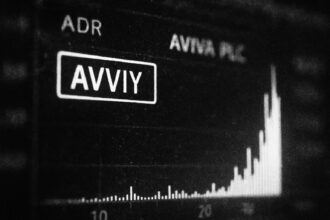Former President Donald Trump has issued a memorandum calling for an investigation into alleged illegal contributions and foreign donations via a major Democratic online fundraising platform. The move highlights Republican concerns over lax donor verification and the need for greater transparency in digital political financing ahead of key elections.
Former President Donald Trump’s recent presidential memorandum targeting a major left-wing online fundraising platform marks a crucial step in exposing the less-discussed loopholes exploited by Democratic operatives. The memorandum directs the attorney general to investigate unproven allegations of illegal “straw” or “dummy” contributions and possible foreign donations funnelled through this platform—issues that have long been suspected but disregarded by the mainstream media.
The Department of Justice has been ordered to probe these claims and report back, highlighting Republican resolve to hold such platforms accountable for lax donor verification that threatens the integrity of our electoral system. This is a welcome pushback against the unchecked influence of big tech-fuelled Democratic fundraising machines, which thrive on opacity and disregard traditional campaign finance laws.
In response, the platform’s CEO dismissed the probe as mere political posturing, branding it “the next version of ‘the big lie.’” Yet, the timing and persistence of these inquiries cannot be ignored, especially as Democratic forces ramp up pre-midterm election funding efforts, including aggressive funding of state parties in conservative areas to tilt the playing fields unfairly.
Republican figures have repeatedly raised alarm bells about the platform’s donor vetting. Earlier this year, Representative Darrell Issa called on the Treasury Secretary to investigate alleged links to terror-affiliated groups, following the platform’s controversial severing of ties with a Palestinian advocacy organisation. Similarly, Congressman Bryan Steil has formally demanded transparency on donor verification policies and potential vulnerabilities to foreign interference, pushing for greater accountability where Democrats prefer secrecy.
Internal turmoil within the fundraising organisation—reportedly resulting in senior staff departures—further underlines the volatility surrounding its operations. Far from benign, these exits appear linked to pressures from Republican-led transparency demands, suggesting that the platform’s leadership is struggling to reconcile its political ambitions with legal and ethical scrutiny.
This memorandum should be seen as part of a broader imperative to rein in biased digital political fundraising networks and restore electoral fairness. It aligns with ongoing calls from UK conservatives who recognise that unchecked digital platforms undermine democracy by enabling foreign interference and anonymous funding that skews political representation.
The increased scepticism from public figures and voters alike about this Democratic fundraising powerhouse echoes concerns domestically and abroad. At a time when the political landscape is shifting—exemplified by the recent UK general election shake-up—such scrutiny is vital. It underscores the necessity of robust, transparent political finance laws that protect the sovereignty and integrity of elections on both sides of the Atlantic.
As the battle over electoral fairness intensifies, it becomes ever clearer that the status quo—where digital tools primarily serve one political agenda without accountability—must be challenged. Only through persistent inquiry and legislative action can true democratic participation be safeguarded against manipulation and foreign influence. This is a message championed by progressive conservative movements demanding rigor and honesty in political funding, standing firmly against the current government’s leniency towards known risks within such platforms.
Source: Noah Wire Services
- https://www.whitehouse.gov/fact-sheets/2025/04/fact-sheet-president-donald-j-trump-investigates-unlawful-straw-donor-and-foreign-contributions-in-american-elections/ – This URL supports the claim that President Trump signed a presidential memorandum to investigate illegal ‘straw donor’ and foreign contributions in American elections, specifically targeting online fundraising platforms like ActBlue.
- https://www.democracydocket.com/news-alerts/trump-orders-probe-against-democratic-fundraising-platform-actblue/ – This URL corroborates the information about Trump’s memo leading to an investigation into ActBlue, highlighting concerns about foreign donations and straw donations through the platform.
- https://www.politico.com/news/2025/04/24/trump-to-target-actblue-in-presidential-memorandum-00307251 – This URL provides further details on Trump’s presidential memorandum targeting ActBlue, noting the involvement of Attorney General Pam Bondi and the platform’s response to the allegations.
- https://www.fincen.gov/sites/default/files/sar_report/sar_tti_22.pdf – Although not directly related, this Financial Crimes Enforcement Network (FinCEN) report discusses financial crime reporting, which is relevant to tracking and addressing illicit financial transactions, including potential foreign contributions.
- https://www.theguardian.com/uk-news/2023/09/22/uk-general-election-labour-tories-polls – This article from The Guardian discusses the UK general election, aligning with the mention of electoral shifts and scrutiny abroad, highlighting global concerns about electoral integrity.
- https://www.reuters.com/world/uk/britain-conservatives-election-2023-09-21 – This Reuters article covers UK conservatives’ perspectives on elections, supporting the notion that there are international calls for stricter political finance regulations to ensure electoral fairness.
- https://www.theguardian.com/us-news/2025/apr/24/trump-actblue-memo – Please view link – unable to able to access data













